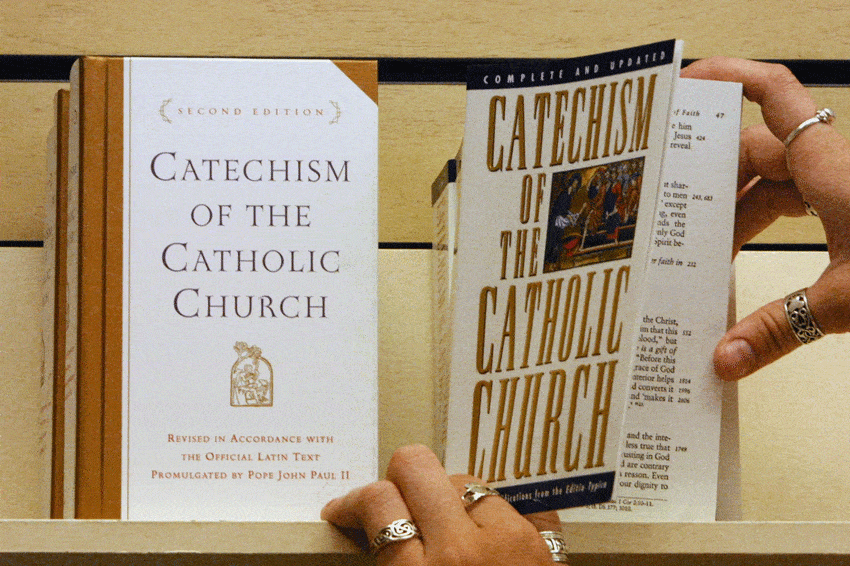
In order to keep abreast of everything I need to know in the news, I subscribe to a news clipping service for articles and other media that is relevant to the Church. The clipping service scours thousands of media outlets for keywords like ‘Archbishop of Sydney,’ ‘euthanasia’ and ‘religious freedom’ and sends me an email whenever a keyword is mentioned in the news.
Recently, my inbox exploded with mentions of a controversy at the parish in North Sydney. After an initial panic, I realised the reference was to North Sydney, Canada, and not here in NSW. Notwithstanding it is half a world away, the story was alarming.
What brought the parish into the news was the ‘religious education’ section of the weekly bulletin. Each week for years, the parish Priest, Father Doug Macdonald, was printing an excerpt from the Compendium of the Catechism of the Catholic Church. With an average of two or three paragraphs printed in the bulletin each week, the parish would have read the Compendium over a period of about four or five years.
If, when challenged, we apologise for our teachings, then we too will find ourselves in a situation where the Catechism is deemed “problematic literature”
The controversy arose in the week that Father Doug printed the sections on assisted reproduction, that is, artificial insemination, IVF and the use of donor gametes.
Predictably, outrage ensued, with protests planned outside the church during the Sunday Masses for the following weekend. The protest organiser named the purpose of the protest as getting Father Doug “to really be aware of the problematic nature of the literature he’s been sharing.”
The problematic nature of the literature? It’s the Catechism for crying out loud!
Skimming through the scores of news articles on the matter, there did not appear to be any actual parishioners complaining about the newsletter. There was a former parishioner (who now works in a fertility clinic), another woman who was a member of a local ‘reproductive rights’ group, a local business owner and a LGBT lobbyist.
None of those commenting appeared to have any current connection to the parish, but we know the outrage industry never requires an actual nexus to the religious organisation or even the religion itself for a person to be offended by a religious teaching and insist that it change.
Father Doug didn’t celebrate the Sunday Masses the following weekend and the next bulletin featured a moving open letter from him, saying that he never meant to hurt anyone, assuring each person of their value and offering prayers for those who had been hurt.
The letter is beautiful and evidently came from a pastor who has a deep love for his flock and also for the teachings of the Church.
The Bishop of the Diocese also included a message in the parish bulletin, acknowledging the hurt but also explaining that the Church’s teaching on assisted reproduction is actually out of concern for families. (Just quietly, I am pleased to see he did that, rather than distance himself or worse, throw the poor priest under the bus for the unforgivable sin of not being pastoral.)
This, my friends, is where we are headed. It is not just some unfortunate episode in a parish half a world away but the next step in those trying to push religious discourse out of the public square.
Consider the arguments in recent weeks about whether a statement of religious belief made in good faith should be protected against anti-discrimination suits. These arguments are not, as Equality Australia and others would have you believe, about ensuring that people with disabilities are protected from religious zealots telling them that they are sinners.
Rather, they are about trying to ensure that magisterial teaching on matters of marriage and sexuality and the sanctity of human life are not permitted to be expressed, even in religious schools (cf the Citipointe saga from a few weeks ago.)
If, when challenged, we apologise for our teachings, then we too will find ourselves in a situation where the Catechism is deemed “problematic literature” and a cause of protest and international news headlines.
As counterintuitive as it might seem, now is the time to proclaim Church teaching – in all its truth and beauty – from the housetops.
Related:
